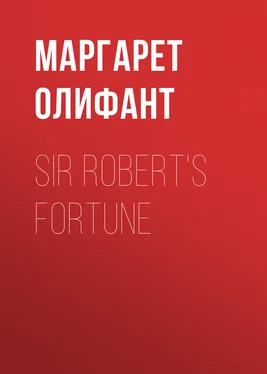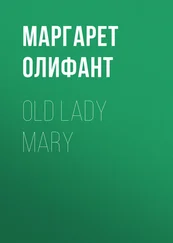Маргарет Олифант - Sir Robert's Fortune
Здесь есть возможность читать онлайн «Маргарет Олифант - Sir Robert's Fortune» — ознакомительный отрывок электронной книги совершенно бесплатно, а после прочтения отрывка купить полную версию. В некоторых случаях можно слушать аудио, скачать через торрент в формате fb2 и присутствует краткое содержание. Издательство: Иностранный паблик, Жанр: foreign_prose, literature_19, foreign_antique, на английском языке. Описание произведения, (предисловие) а так же отзывы посетителей доступны на портале библиотеки ЛибКат.
- Название:Sir Robert's Fortune
- Автор:
- Издательство:Иностранный паблик
- Жанр:
- Год:неизвестен
- ISBN:нет данных
- Рейтинг книги:5 / 5. Голосов: 1
-
Избранное:Добавить в избранное
- Отзывы:
-
Ваша оценка:
- 100
- 1
- 2
- 3
- 4
- 5
Sir Robert's Fortune: краткое содержание, описание и аннотация
Предлагаем к чтению аннотацию, описание, краткое содержание или предисловие (зависит от того, что написал сам автор книги «Sir Robert's Fortune»). Если вы не нашли необходимую информацию о книге — напишите в комментариях, мы постараемся отыскать её.
Sir Robert's Fortune — читать онлайн ознакомительный отрывок
Ниже представлен текст книги, разбитый по страницам. Система сохранения места последней прочитанной страницы, позволяет с удобством читать онлайн бесплатно книгу «Sir Robert's Fortune», без необходимости каждый раз заново искать на чём Вы остановились. Поставьте закладку, и сможете в любой момент перейти на страницу, на которой закончили чтение.
Интервал:
Закладка:
“I never said,” cried Lily, angry tears coming to her eyes, “that there was any reason or that it was for punishment. I just came here because—because Uncle Robert wanted me to come,” she added in a little burst of indignation, yet dignity; “and nobody that I know has a right to say a word.”
“Just so,” said Mr. Blythe; “he wanted you, no doubt, to give an eye to Dougal and Katrin, who might be taking in lodgers or shooting the moors for their own profit for any thing that he can tell. He’s an auld-farrant chield, Sir Robert. He would not say a word to you, but he would reckon that you would find out.”
“Mr. Blythe,” cried Lily with fresh indignation, “if you think my uncle sent me here for a spy, to find out things that do not exist–”
“No, my dear, I don’t, I don’t,” said the minister. “I am satisfied he has a mind above that, and you too. But he’s not without a thread of suspicion in him; indeed, he’s like most men of his years and experience, and believes in nobody. No, no, Dougal does not put the moor to profit, which might be a temptation to many men; but he has plenty of sport himself in a canny way, and there’s a great deal of good game just wasted. You may tell Sir Robert that from his old friend. Just a great deal of good game wasted. He should come and bring a few nice lads to divert you, and shoot the moor himself.”
“That’s just one of papa’s crazes,” said Helen, returning with her teapot in her hand, the tray, with all its jingling cups and saucers, having been put on the table in the meantime. “He thinks the gentlemen should come back from wherever they are, or whatever they may be doing, to shoot the moors. It would certainly be far more cheery for the countryside, but very likely Sir Robert cares nothing about the moor, and is just content with the few brace of grouse that Dougal sends him. I believe it’s considered a luxury and something grand to put on the table in other places, but we have just too much of it here. Now draw to the table and take your tea. The scones are just made, and I can recommend the shortbread, and you must be wanting something after your ride. I have told John to give the powny a feed, and you will feel all the better, the two of you, for a little rest and refreshment. Draw in to the table, my bonnie dear.”
These were before the days of afternoon tea; but the institution existed more or less, though not in name, and “the tea” was administered before its proper time or repeated with a sense of guilt in many houses, where the long afternoon was the portion of the day which it was least easy to get through—when life was most languid, and occupation at a lull. Lily ate her shortbread with a girl’s appetite, and took pleasure in her visit. When she mounted Rory again and set forth on her return, she asked herself with great wonder whether it was possible that there could be any thing under that soft aspect of Helen Blythe, her serene countenance and delicate color, which could in any way correspond with the trouble and commotion in her own young bosom? Helen had, indeed, her father to care for, she was at home, and had, no doubt, friends; but was it possible that a thought of some one who was not there lay at the bottom of all?
Lily confessed to Robina when she got home that she had been much enlivened by her visit, and that Helen was coming to see her, and that all would go well; but when Beenie, much cheered, went down stairs to her tea, Lily unconsciously drew once more to that window, that watchtower, from which nobody was ever visible. The moor lay in all the glory of the evening, already beginning to warm and glow with the heather, every bud of which awoke to brightness in the long rays of the setting sun. It was as if it came to life as the summer days wore toward autumn. The mountains stood round, blue and purple, in their unbroken veil of distance and visionary greatness, but the moor was becoming alive and full of color, warming out of all bleakness and grayness into life and light. The corner of the road under the trees showed like a peep into a real world, not a dreary vacancy from which no one came. There was a cart slowly toiling its way up the slope, its homely sound as it came on informing the silence of something moving, neighborly, living. Lily smiled unconsciously as if it had been a friend. And when the cart had passed, there appeared a figure, alone, walking quickly, not with the slow wading, as if among the heather, of the rare, ordinary passer-by. Lily’s interest quickened in spite of herself as she saw the wayfarer breasting the hill. Who could he be, she wondered. Some sportsman, come for the grouse—some gentleman, trained not only to moorland walking, but to quick progress over smoother roads. He skimmed along under the fir-trees at the corner, up the little visible ascent. Lily almost thought she could hear his steps sounding so lightly, like a half-forgotten music that she was glad, glad to hear again; but he disappeared soon under the rising bank, as every thing did, and she was once more alone in the world. The sun sank, the horizon turned gray, the moor became once more a wilderness in which no life or movement was.
No!—what a jump her heart gave!—it was no wilderness: there was the same figure again, stepping out on the moor. It had left the road, it was coming on with springs and leaps over the heather toward the house. Who was it? Who was it? And then he, he! held up his hand and beckoned, beckoned to Lily in the wilderness. Who was he? Nobody—a wandering traveller, a sportsman, a stranger. Her heart beat so wildly that the whole house seemed to shake with it. And there he stood among the heather, his hat off, waving it, and beckoning to her with his hand.
CHAPTER IX
The situation of Ronald Lumsden, for whom Lily felt herself to have sacrificed so much, and who showed, as she felt at the bottom of her heart, so little inclination to sacrifice any thing for her, was, in reality, a difficult one. It would have been false to say that he did not love her, that her loss was no grief to him, or that he could make himself comfortable without her—which was what various persons thought and said, and he was not unaware of the fact. Neither was he unaware that Lily herself had a half grudge, a whole consciousness, that the way out of the difficulty was a simple one; and that he should have been ready to offer her a home, even though it would not be wealthy, and the protection of a husband’s name and care against all or any uncles in the world. He knew that she was quite willing to share his poverty, that she had no objection to what is metaphorically called a garret—and would really have resembled one more than is common in such cases: a little flat, high up under the roofs of an Edinburgh house—and to make it into a happy and smiling little home. And as a matter of fact that garret would not have been inappropriate, or have involved any social downfall either on his side or Lily’s. Young Edinburgh advocates in those days set up their household gods in such lofty habitations without either shame or reluctance. Not so very long before the man whom we and all the world know as Lord Jeffrey set out in the world on that elevation and made his garret the centre of a new kind of empire. There was nothing derogatory in it: invitations from the best houses in Edinburgh would have found their way there as freely as to George Square; and Lily’s friends and his own friends would have filled the rooms as much as if the young pair had been lodged in a palace. He could not even say to himself that there would have been privations which she did not comprehend in such a life; for, little though they had, it would have been enough for their modest wants, and there was a prospect of more if he continued to succeed as he had begun to do. Many a young man in Edinburgh had married rashly on as little and had done very well indeed. All this Ronald knew as well as any one, and the truth of it rankled in his mind and made him unhappy. And yet on the other side there was, he felt, so much to be said! Sir Robert Ramsay’s fortune was not a thing to be thrown away, and to compare the interest, weight, and importance of that with the suffering involved to young people who were sure of each other in merely waiting for a year or two was absurd. According to all laws of experience and life it was absurd. Lily was very little over twenty; there was surely no hurry, no need to bring affairs to a climax, to insist on marrying when it would no doubt be better even for her to wait. This was what Lumsden said to himself. He would rather, as a matter of preference, marry at once, secure the girl he loved for his life-companion, and do the best he could for her. But when all things were considered, would it be sensible, would it be right, would it be fair?
Читать дальшеИнтервал:
Закладка:
Похожие книги на «Sir Robert's Fortune»
Представляем Вашему вниманию похожие книги на «Sir Robert's Fortune» списком для выбора. Мы отобрали схожую по названию и смыслу литературу в надежде предоставить читателям больше вариантов отыскать новые, интересные, ещё непрочитанные произведения.
Обсуждение, отзывы о книге «Sir Robert's Fortune» и просто собственные мнения читателей. Оставьте ваши комментарии, напишите, что Вы думаете о произведении, его смысле или главных героях. Укажите что конкретно понравилось, а что нет, и почему Вы так считаете.












